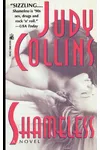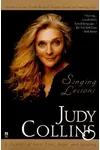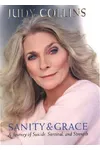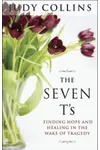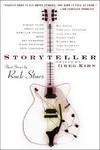Picture a folk songstress whose crystalline voice could hush a crowded room—meet Judy Collins! Born in 1939, this American icon has woven stories of love, loss, and justice through six decades of music. From her 1960s folk revival anthems to her soulful covers of Joni Mitchell and Leonard Cohen, Collins’s artistry and activism have left an indelible mark on music and culture.
The Making of Judy Collins
Judy Collins was born in Seattle, Washington, and raised in Denver, Colorado. A classical piano prodigy by age five, she trained under renowned conductor Antonia Brico. But the Greenwich Village folk scene of the 1950s stole her heart, trading Beethoven for Bob Dylan. By her teens, she was strumming guitars, singing ballads, and captivating audiences with her ethereal voice.
Her big break came in 1961 with her debut album, A Maid of Constant Sorrow. At 22, Collins was already a folk sensation, blending traditional tunes with contemporary flair. Her early years weren’t without struggle—personal battles with mental health and loss shaped her resilient spirit, which would later fuel her activism.
Judy Collins’s Unforgettable Songs
Collins’s discography is a tapestry of folk, pop, and protest songs. Her 1967 album Wildflowers, featuring the haunting ‘Both Sides Now,’ showcased her knack for transforming others’ work into timeless classics. The song, penned by Joni Mitchell, soared to the Top 10, cementing Collins as a folk-pop bridge.
Her 1968 album Who Knows Where the Time Goes blended originals like the title track with covers of Sandy Denny and Ian Tyson. Its introspective tone captured the era’s zeitgeist. Later, Judith (1975) delivered her biggest hit, Stephen Sondheim’s ‘Send in the Clowns,’ a Grammy-nominated masterpiece. Collins’s style—marked by pristine vocals, poetic lyricism, and fearless genre-hopping—made her a beacon for authenticity.
She also championed new voices, introducing Leonard Cohen’s ‘Suzanne’ to the world and mentoring countless artists. Her ability to balance tradition with innovation kept her relevant across decades, from Woodstock to modern Americana festivals.
Why Judy Collins Matters
Judy Collins is more than a singer—she’s a cultural force. Her music gave voice to the civil rights and anti-war movements, with songs like ‘Amazing Grace’ becoming anthems for hope. Her advocacy for mental health awareness, informed by personal triumphs over depression and loss, resonates deeply. Collins’s memoirs, including Sweet Judy Blue Eyes, reveal a life of courage and creativity, inspiring generations.
Her legacy endures in her influence on folk and singer-songwriter genres, from Joan Baez to Brandi Carlile. At 85, she still tours, her voice as luminous as ever, proving that art and activism can change the world.
About Judy Collins
- Born: May 1, 1939, Seattle, Washington
- Key Albums: Wildflowers (1967), Who Knows Where the Time Goes (1968), Judith (1975)
- Awards: Grammy nominations, Grammy Hall of Fame for ‘Both Sides Now’
- Fun Fact: Collins studied under conductor Antonia Brico, featured in the 2018 film The Conductor.
Snag Wildflowers or Sweet Judy Blue Eyes and dive into Judy Collins’s soul-stirring folk legacy!
